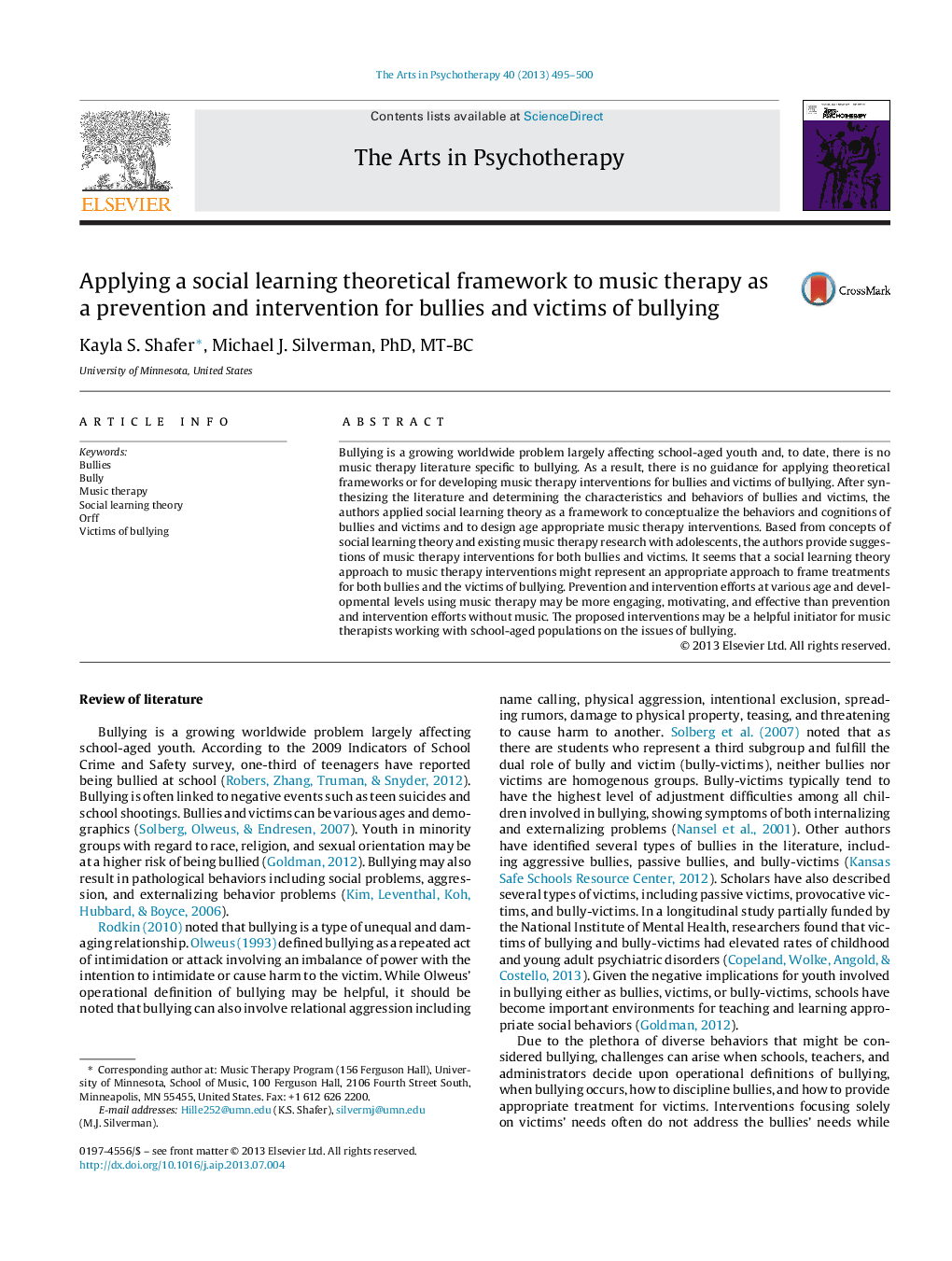| Article ID | Journal | Published Year | Pages | File Type |
|---|---|---|---|---|
| 343637 | The Arts in Psychotherapy | 2013 | 6 Pages |
•To date, there is no music therapy literature specific to bullying.•Social learning theory can be applied to understand behaviors of bullies and victims.•Social learning theory and the Orff-Schulwerk philosophy can be applied to designing engaging music therapy interventions for bullies and victims.•Researchers have found music therapy to be effective with populations that share characteristics of bullies and victims.
Bullying is a growing worldwide problem largely affecting school-aged youth and, to date, there is no music therapy literature specific to bullying. As a result, there is no guidance for applying theoretical frameworks or for developing music therapy interventions for bullies and victims of bullying. After synthesizing the literature and determining the characteristics and behaviors of bullies and victims, the authors applied social learning theory as a framework to conceptualize the behaviors and cognitions of bullies and victims and to design age appropriate music therapy interventions. Based from concepts of social learning theory and existing music therapy research with adolescents, the authors provide suggestions of music therapy interventions for both bullies and victims. It seems that a social learning theory approach to music therapy interventions might represent an appropriate approach to frame treatments for both bullies and the victims of bullying. Prevention and intervention efforts at various age and developmental levels using music therapy may be more engaging, motivating, and effective than prevention and intervention efforts without music. The proposed interventions may be a helpful initiator for music therapists working with school-aged populations on the issues of bullying.
